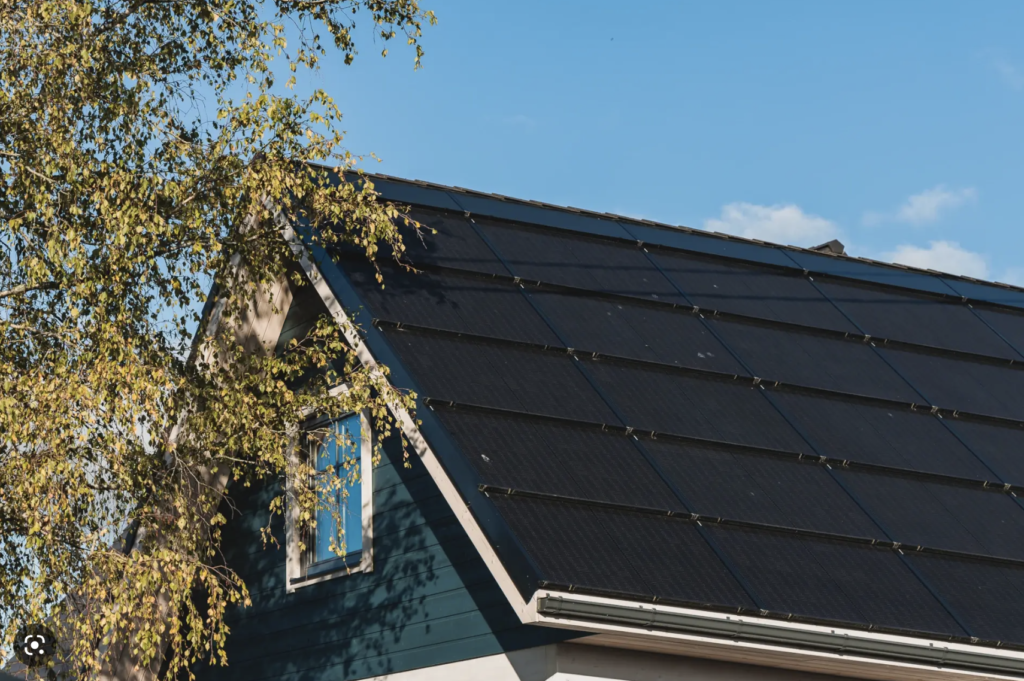Who stands in the way of the expansion of residential solar panel use? You’ve likely heard about politicians who are protecting the dirty fossil fuel special interests in order to tap into huge campaign contributions. And then there are the people who spread false information that solar is more expensive than fossil fuels or will deplete the sun’s energy.
But you might not have heard as much about the barriers Home Owners Associations (HOA) present.
Home Owners Associations — those earnest guardians of neighborhood uniformity, conformity, and banality — are a substantial barrier for those who want to use solar panels to cut their energy bills and/or reduce their impact on climate change.
Many HOAs have bylaws that directly or indirectly forbid the installation of rooftop solar panels. They apparently view solar panels as something that adds too much unsightly variation to their carefully planned cookie-cutter housing developments.
While solar panels are not works of art, they now blend in much better than in the past. We’re all much more accustomed to seeing them, and solar panel products are more attractive and unobtrusive than they used to be.

More importantly, the benefits of solar panel use — limiting catastrophic climate change and defraying significant household costs — greatly outweigh any slight aesthetic cost. It’s not a close call.
Still many HOAs are doing what they do, enforcing their rules. That’s substantially limiting the use of solar panels.
I have a personal story to illustrate how this works. For the first time in my life, I recently moved into a home governed by an HOA. Shortly after moving in, I emailed the HOA contact to ask if there are any limitations related to rooftop solar panels. (I should note that I had not yet secured the all-important spousal approval and appropriation, a daunting hurdle in itself, but I first wanted to see if this was even an option.)
The HOA contact swiftly emailed me to deliver a non-rejection rejection:
“…there are currently no specific restrictions on solar panel installations, other than they must not be visible from the public right-of-ways.”
About that “other than” clause: Since all pitched roofs are visible from public rights-of-way — streets, sidewalks, and alleys — the HOA is effectively telling me, in an indirect “Minnesota Nice” way, that there is no way in hell they are going to let me or anyone else install solar panels in their development. So, I dropped it.
How many Minnesotans does this impact? According to Iproperty Management:
“There are 7,780 HOAs in Minnesota. Roughly 1.52 million people in Minnesota live in HOA communities. 26.6% of Minnesotans live in HOA communities. 13.7% of Minnesota homeowners are part of HOAs. An estimated 583,462 homes in Minnesota are part of HOA communities.”
This is not just a “woke” liberal issue. Because homeowners with rooftop solar panels are saving thousands of dollars in energy bills, this is also a significant financial issue. It benefits the 20% of Americans who still somehow don’t believe climate change is happening, but want to save thousands of dollars in energy bills. Now that the price of solar energy systems has decreased significantly, and energy costs are skyrocketing, the payoff from solar panels has never been more lucrative.
I hope this is the year that Minnesota HOAs will be stopped from standing in the way of solar panel use. Over the last two years, Minnesota legislators considered a bipartisan bill authored by State Senator Karin Housley (R-Stillwater) and Representative Ami Wazlawik (DFL-White Bear Township) to regulate the HOA regulators. The Housley-Wazlawik bill would have allowed the HOA to impose limits, but the limits could not decrease production by more than 20%, or add more than $2,000 to the cost.
Since my HOA’s “not visible from the public right-of-ways” restrictions effectively decreased production for any pitch-roofed home near a street, sidewalk, or alley by 100%, it would seem to be an illegal restriction, if a bill like the Housley-Wazlawik bill passes.
With the Minnesota Senate controlled by Republicans during the 2020-2022 legislative sessions, the Housley-Wazlawik bill languished. Moreover, last year’s partisan-divided Legislature ended in a stalemate that left most business undone.
Now the Minnesota Senate, House, and Governor’s office will be controlled by DFLers. These are folks who promised on the campaign trail to address climate change and help Minnesotans “make ends meet” during a time of historically high inflation. Now they need to deliver on those promises. Therefore, it would sure seem that the legislation’s likelihood of passing have improved significantly. Here’s hoping.
Now, does anyone know a good lobbyist I can hire to persuade my wife?
